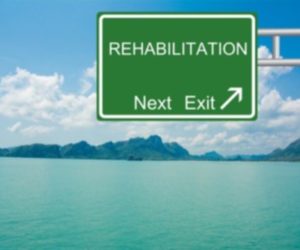Five Components of an Effective Drug Treatment Program

Addiction to drugs and alcohol will devastate a person’s life and can leave them feeling helpless and hopeless. When an addict finally admits that they need professional help they have to know how to find it. The first step would be to look for a certified drug treatment facility with proven effective treatment programs. Facilities that are certified by their State have to follow specific criteria and offer certain programs that are approved by their State. When looking for the right rehab facility there are questions you should ask, and things to look for. Presented here is an overview of what to look for when choosing a drug treatment facility.
Specialized Treatment
When an addict enters a rehab facility, they will be physically and psychologically assessed by a professional medical team. Once the assessment is done, a specialized treatment program should be devised specifically for that individual’s needs. There are no cookie-cutter treatment programs for the rehabilitation of addiction because each patient is unique in their history and needs. As the patient goes through the different processes of rehabilitation, they should continually be re-assessed according to their progress. The assessment of the addict will reveal the severity of the addiction and if there are co-occurring mental disorders and other health problems. The treatment program should be holistic and address all these problems as an integrated whole, because these problems affect each other. The drug treatment facility should include a medical detox program, psychological and behavioral therapy, alternative treatment programs, family counseling and aftercare.
The Detox Process
During the first stage of rehabilitation, the patient will go through the detox process. The patient will slowly be weaned off of the drugs and/or alcohol that they were using. During medical detox, the patient will be monitored 24/7 by the medical staff to assure that they are kept stable and as comfortable as possible. As the substances are flushed from the body, withdrawal symptoms will begin as the mind and body struggle to function without the drugs or alcohol. Medications are available to assist the patient during withdrawal. These medications will alleviate some of the symptoms and completely eliminate others, making it easier for the patient to get through the process.
Comfort and Trust
The rehab facility staff should be experienced in addiction recovery while also being compassionate and kind. The staff should treat the patient with integrity and build trust and rapport with the patient. When a patient feels comfortable and secure in a rehab facility environment they are more to likely to go through the rehabilitation program more easily. The next phase of treatment will be individual and group counseling and the patient has to feel comfortable enough to engage in the programs of addiction recovery.
Psychological Counseling
Psychological counseling includes individual and group therapy. These therapies are designed to treat substance addiction by addressing thought, attitude and behavior patterns. Negative and destructive patterns are broken and replaced by healthy, productive ones. The addict will learn why they became substance dependent in the first place and how to avoid relapse in the future. They will learn new coping skills to empower them to handle cravings, triggers and strong emotions. The addict will also learn how to avoid or deter high-risk situations and people. Aftercare programs should also include individual and group counseling. Psychological counseling will teach and equip the patient about how to make the right decisions for a healthy, happy future.
Family Counseling
Another important program that the rehab facility should offer is family counseling. This program provides a forum for family members to discuss their thoughts, feelings and concerns about the family. Parents, children, siblings and spouses are all affected by addiction and sometimes their thoughts and feelings become overwhelming. In family counseling, each member is free to discuss issues of trust, shame, guilt, fear, anger, confusion and more. The program should teach family members about addiction, and how to cope with their loved one without becoming an accuser or enabler. The family is a recovering addict’s strongest support group, so it is vital that the family unit be healed to work together as a team.
Getting Help for Addiction
If you or a loved one needs help with abuse and/or treatment, please call the WhiteSands Treatment at (877) 855-3470. Our addiction specialists can assess your recovery needs and help you get the addiction treatment that provides the best chance for your long-term recovery.
